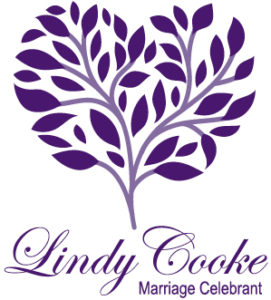We all love a celebration and, for many people, alcohol plays a big part in having fun. There is, however, one occasion when being drunk in love may cause you more of a headache than you bargained on!
♥ Guidelines on the Marriage Act
The current Guidelines are based on the Marriage Act 1961. They apply to all authorised celebrants who solemnise marriages in Australia, unless otherwise stated.
8.6.4 Concerns about consent
On p. 90, the Guidelines specifically refer to the fact that a celebrant must be satisfied that both parties genuinely consent to the marriage. If at any point they are unsure of the genuine consent of either party, they should not solemnise the marriage. They go on to say:
“For example, if alcohol or drugs are involved, the party should be displaying a reasonable level of comprehension or understanding of the nature and effect of marriage. A person who has had an alcoholic drink prior to the ceremony but is not inebriated is most likely to be able to be in a position to consent to the marriage.
However, a person who is intoxicated is unlikely to be in a position to form the necessary understanding of the nature and effect of marriage. It is an authorised celebrant’s responsibility to refuse to proceed with the solemnisation of the marriage if the parties are so affected by drugs and/or alcohol that the marriage would be void due to a lack of consent.
Ultimately, this is something that can only be determined on the day and requires the individual judgment of the celebrant. The celebrant may wish to offer to conduct a commitment ceremony, with the legal marriage being performed at a later date.”
The celebrant must also be satisfied that the legal witnesses are also in a fit state to provide evidence (if called upon) to establish the identity of the parties or to testify as to the circumstances in which the ceremony was performed.
♥ Ramifications
Taking into account:
- the expense outlayed when preparing for a wedding;
- the potential extra fee that would be charged by the celebrant if solemnising the marriage were postponed to later that day (or another day) and a Commitment Ceremony were performed on what was to have been the wedding day;
- the embarrassment to the couple concerned, as well as their family and friends; and
- the serious ramifications to the marriage celebrant if they were to proceed with solemnising a marriage under these circumstances;
it can be seen that this is not an issue to be taken lightly.
♥ The legalities
Of course, once the legalities have been attended to, the party can get started! The key things that must be included for any marriage ceremony to be legal are:
- consent;
- both parties must be 18+ years of age (unless special permission from an authorised person is given to one of the parties if they are under that age);
- the couple must have lodged a Notice of Intended Marriage a minimum of 1 month (up to 18 months) prior to their marriage (unless a shortening of time has been granted);
- the celebrant must sight the couple’s proof of date and place of birth as well as their identity prior to the marriage;
- the celebrant must witness the couple’s signatures on a document entitled the “Declaration of No Legal Impediment to Marriage” prior to the marriage taking place;
- the Monitum must be stated by the celebrant during the ceremony;
- the celebrant must state their name;
- the full names of the couple must be stated at least once during the ceremony;
- the legal vows must be stated by the couple during the ceremony;
- two people, over the age of 18, must witness and be able to hear the ceremony before they, the couple and the celebrant each sign three Certificates of Marriage; and
- the marriage must be registered with the Registry of Births Deaths & Marriages in the state/territory in which it occurred within 14 days of the date of the ceremony.
The notion of being drunk in love (meaning so in love that you feel intoxicated) is perhaps a safer way to go. This will ensure that, at the end of your wedding day, you will be legally married and have had an amazing time celebrating with those you love.

068 ~ 30/11/2019
© Lindy Cooke Celebrant
